Tel Aviv signals Israel will keep up striking Syria even by violating de-escalation zone
The Israeli regime has signaled that Tel Aviv would continue with military strikes across the Syrian border to thwart any alleged encroachment by Iranian-allied forces, including the Lebanese resistance movement Hezbollah, even by violating a de-escalation zone designated by Russia and the US in the southwest of the Arab country.
Back on July 7, Russia, the US and Jordan agreed to back a ceasefire in southwestern Syria and to establish a de-escalation zone in the Syrian provinces of Dara’a, Suwayda and Quneitra, which borders the Israeli-occupied Golan Heights. The truce came into force two days later and proved to be helpful in reducing fighting in the designated area.
Israel has already said that it refuses to abide by the July 7 truce deal. Later in the month, the regime’s Minister of Military Affairs Avigdor Liberman affirmed that “Israel reserves its complete freedom of action, regardless of any understandings or developments” in the region.
On Saturday, US President Donald Trump and his Russian counterpart, Vladimir Putin, affirmed joint efforts to stabilize the war-torn Arab country as the foreign-backed militancy dies down. Parts of the efforts are said to be the expansion of the July truce in the southwestern triangle bordering Israel and Jordan.
However, Israeli Prime Minister Benjamin Netanyahu, in his televised remarks opening Israel's weekly cabinet meeting on Sunday, did not elaborate on the new Washington-Moscow arrangement for Syria.
Furthermore, Israel’s Minister for Regional Cooperation Tzachi Hanegbi told reporters after the meeting that the truce deal “does not meet Israel's unequivocal demand that there will not be developments that bring the forces of Hezbollah or Iran to the Israel-Syria border in the north.”
Elsewhere in his comments, the Israeli minister said that Tel Aviv had “set red lines” and that it would stand “firm” on them, alluding to the Israeli military strikes in Syria, carried out against suspected Hezbollah arms depots or in retaliation for attacks launched from the Syrian-controlled Golan.
Tel Aviv has, on several occasions, targeted the territory inside Syria, often claiming that it strikes convoys heading for Hezbollah fighters. In the latest incident, Israel announced on Saturday that its military, using a Patriot missile, had intercepted and shot down an unmanned aerial vehicle (UAV) purportedly operated by the Syrian Air Force in the Golan Heights, adding that it was checking whether the aircraft had any connection “to Iran and Hezbollah.”
The Hezbollah fighters have been helping the Syrian military in its battle against Fateh al-Sham and Daesh, two prominent Takfiri terrorist groups operating in the Middle Eastern country.
Back in April 2015, Netanyahu officially admitted for the first time that the regime's military had conducted strikes in the Syrian territory.
Israel seized the Golan Heights from Syria after the 1967 Six-Day War and later occupied it in a move that has never been recognized by the international community. The regime has built dozens of settlements in the area ever since and has used the region to carry out a number of military operations against the Syrian government.
Syria says the raids aim to boost the Takfiri militant groups fighting against the Syrian government forces. Earlier this month, Damascus called on the United Nations to take immediate action against Israel following its airstrike on a copper factory in the town of Hassia in Homs province.
On several occasions, the Syrian army has confiscated Israeli-made arms and military equipment from militants fighting pro-Damascus forces. Israel has also been providing medical treatment to the extremist militants wounded in Syria.
Takfiri groups such as Daesh and al-Nusra have never attacked Israel despite operating close to Syria’s borders with the occupied Palestinian territories over the past couple of years.
Iran reports further drop in annual inflation rate in December
Israel indicts two settlers over suspected spying for Hezbollah
Iran: US airstrikes on Yemen war crimes, violation of international law
Yemeni armed forces down F-18 fighter jet, repel US-UK attack: Spokesman
Iran warns against US-Israeli plot to weaken Muslims, dominate region
VIDEO | Public uproar in US against Israeli regime
‘Ghost town’: 70% of Jabalia buildings destroyed by Israel
Mother’s Day: Sareh Javanmardi’s inspiring journey as Paralympic champion and mother


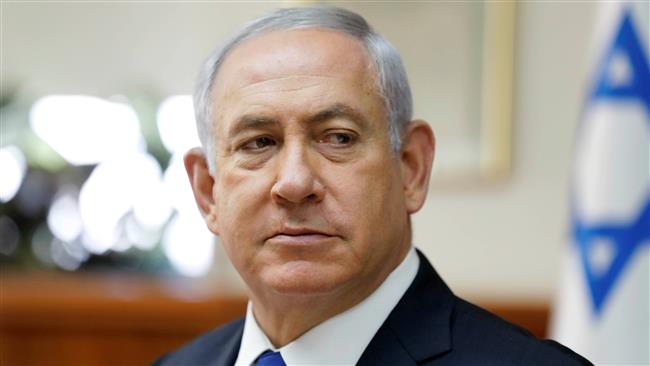

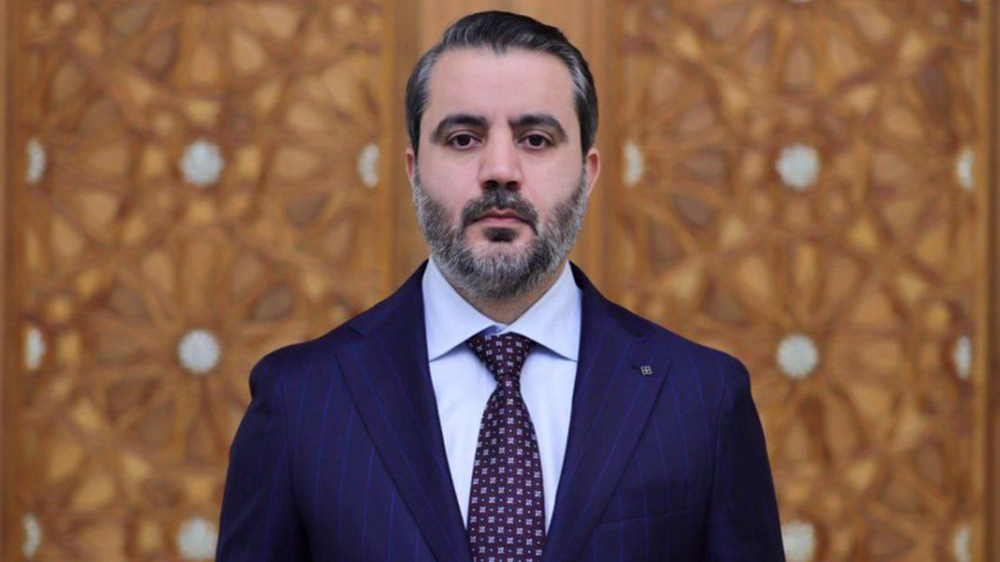

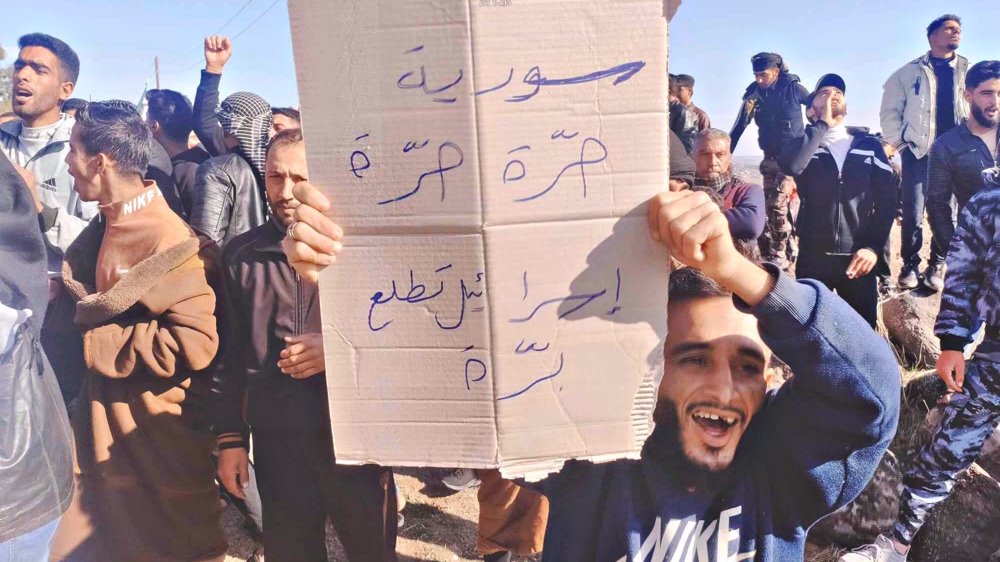



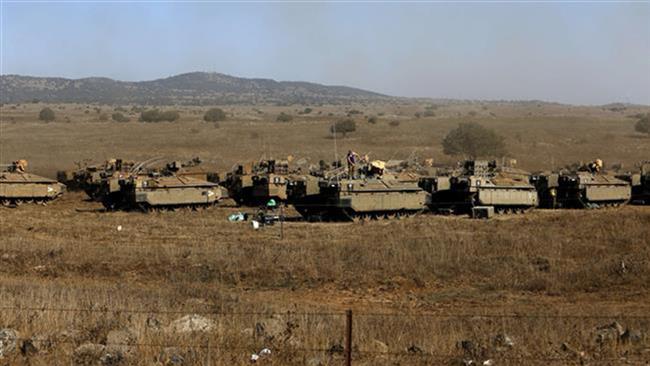
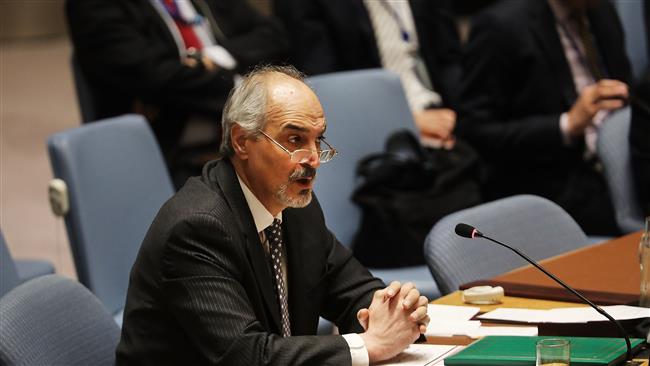
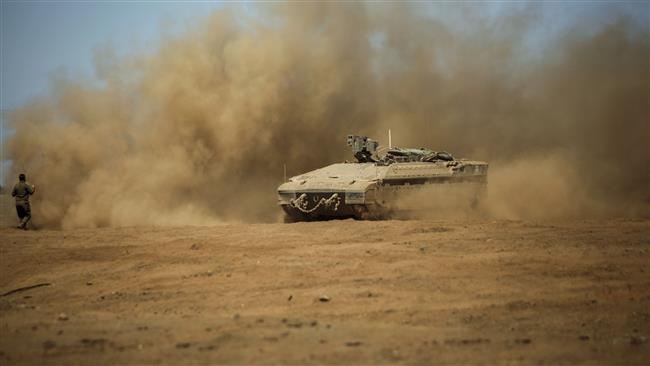


 This makes it easy to access the Press TV website
This makes it easy to access the Press TV website